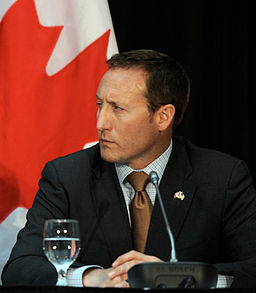You can change the conversation. Chip in to rabble’s donation drive today!
A York University student ignited a firestorm last week when he asked his professor to be excused from group work with female students, citing his religious beliefs.
The York administration’s determination that the student’s request should be accommodated was met with swift condemnation from federal politicians. Expressing his outrage, Minister of Justice Peter MacKay proclaimed that “we did not send soldiers to Afghanistan to protect the rights of women to only see those same rights eroded here at home.”
“Ensuring now that millions of girls are able to attend school alongside boys [in Afghanistan],” MacKay declared, “is a very positive accomplishment of our country.”
The triumph of mixed-gender education is the reason for the war in Afghanistan? Thanks for the clarification.
The American and Canadian governments have offered such a shifting panoply of justifications for the violence in Afghanistan — capturing Osama; eliminating al Qaeda; toppling the Taliban; countering insurgency; democratizing the country; liberating women — that it’s sometimes difficult to keep track of the official line.
(Incidentally, Minister MacKay did not need to travel across the world to Afghanistan to fight against gender segregation in schooling. He could have embarked on his co-educational crusade right here in Canada, with some of the most prestigious private schools in the country: St Andrew’s College, Havergal College, Upper Canada College, Branksome Hall, to name a few in Toronto.)
In truth, the impact of Operation Enduring Freedom on the enduring freedom of Afghan women has been dubious. As Sonali Kolhatkar (founder of the Afghan Women’s Mission) and Mariam Rawi (of the Revolutionary Association of Women of Afghanistan) wrote, “the tired claim that one of the chief objectives of the military occupation of Afghanistan is to liberate Afghan women is not only absurd, it is offensive. Waging war does not lead to the liberation of women anywhere. Women always disproportionately suffer the effects of war, and to think that women’s rights can be won with bullets and bloodshed is a position dangerous in its naïveté.”
Indeed, a recent United Nations report found women and children are bearing the brunt of the recent increase in violence against civilians in Afghanistan. It turns out that bombing women into equality is not a fool-proof strategy.
Given the government’s instrumentalization of women’s rights rhetoric to wrap the invasion and lengthy occupation of Afghanistan in a noble package, Minister MacKay’s exploitation of the York accommodation brouhaha to pitch the military enterprise there is highly disingenuous.
It is also highly hypocritical, given the Conservative government’s record of retrograde gender policies. A brief sampling of this menu of ignominies: funding cuts to a very long list of organizations supporting women’s rights domestically and internationally, including closure of 12 out of 16 regional Status of Women Canada offices; elimination of the Court Challenges Program, which provided essential financial support for cases advancing constitutional equality rights; cancellation of a planned multi-billion-dollar national child care program; and rejection of the UN’s recommendation that Canada conduct a national inquiry into violence against Indigenous women.
Since colonial times, Western patriarchs have pointed their oppressive fingers at the misogyny of dark men in dark lands to justify imperialism and militarism abroad, and distract from their own sexism at home. From 19th century British consul general in Egypt Lord Cromer (who advocated for the colonization of Egypt to rescue its women from traditional practices, while heading the Men’s League for Opposing Women’s Suffrage in Britain) to 21st century American President George “Dubya” Bush (who waged war against burkas in Afghanistan while waging war against women’s reproductive freedom in the United States) — the project of “white men saving brown women from brown men” (as Indian philosopher Gayatri Spivak put it so memorably) has a long and ignoble history.
After all, what on earth does the situation in Afghanistan have to do with a request for religious accommodation made at a university in Canada — aside from the fact that both seem to involve Muslim men?
(And once the spectre of the dangerous Muslim man appears on the scene — whenever, wherever — all of us womenfolk are advised to fear for our lives, safety and dignity.)
One student seeking an exemption from working with women in a school project — and accepting the refusal of his request — does not a Taliban government make.
To be frank, I’m more afraid of the Harper Conservatives.
Like this article? Chip in to keep stories like these coming!
Azeezah Kanji and Khadijah Kanji are Programming Coordinators at Noor Cultural Centre, a Muslim educational and cultural institution in Toronto.
Photo: wikimedia commons




